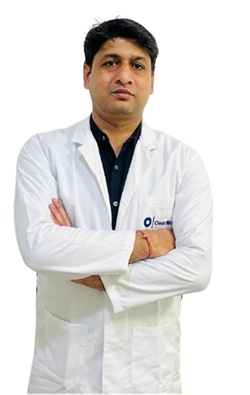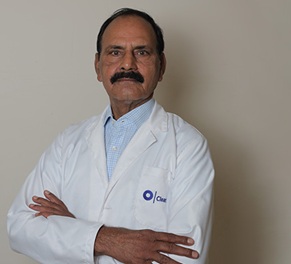Piles during Pregnancy - Symptoms, Causes, Risks & Treatment

Quick Summary
- Piles during pregnancy, also known as haemorrhoids, are a common and uncomfortable condition
- They are caused by increased pressure in the blood vessels due to the growing uterus, hormonal changes and constipation
- Effective treatments are available for piles during pregnancy
- With the right care and support, many women are able to manage their symptoms and enjoy a healthy and comfortable pregnancy
Pregnancy is an exciting time for many women, but it can also come with a range of uncomfortable symptoms. One of the most common and unpleasant of these is piles during pregnancy, also known as haemorrhoids. These swollen veins in the rectum and anus can cause itching, burning, pain, and even bleeding.
It is estimated that around half of all women experience piles during pregnancy, and several factors contribute to their development. These include increased pressure in the blood vessels due to the growing uterus, hormonal changes and constipation that can strain the anal area.
Despite being a common and uncomfortable condition, effective treatments are available for piles during pregnancy. With the right care and support, many women are able to manage their symptoms and enjoy a healthy and comfortable pregnancy.
What is Piles in Pregnancy?
Piles, also known as haemorrhoids, is a common issue that affects many women during pregnancy. It is caused by increased pressure in the pelvic area due to the growing uterus, which can lead to swelling and inflammation of the blood vessels in the rectum and anus.
Piles during pregnancy can cause symptoms such as itching, pain, and bleeding, making everyday activities like sitting and going to the bathroom uncomfortable and difficult. While piles is a common issue for pregnant women, it is generally not harmful to the mother or the baby.  To read in Hindi: गर्भावस्था में बवासीर: कारण, लक्षण, इलाज
To read in Hindi: गर्भावस्था में बवासीर: कारण, लक्षण, इलाज


Understanding Symptoms and Causes
With the increased blood volume and hormonal changes that occur during pregnancy, as well as the pressure placed on the veins in the rectum by the growing uterus, it's no surprise that piles are a common pregnancy complaint. Let's take a closer look at the symptoms and causes of piles during pregnancy and what you can do to manage them.
Symptoms of Piles in Female
Understanding the signs and symptoms of piles in female is important for early detection and treatment. The most common symptoms in the anal area include:
- Pain or discomfort
- Itching or burning
- Bright red blood in the stool or on toilet paper
- Swelling or a lump
- A mucus discharge
- Pain during bowel movements
- Difficulty sitting or standing for long periods
Below is a Piles Image showing the Signs and Symptoms. You can also find various Piles images in female on our website. To learn more, read Symptoms of Piles in Female
 Piles during Pregnancy Causes
Piles during Pregnancy Causes
By being aware of the causes of piles, you can take steps to minimise the risks and ensure a healthy and comfortable pregnancy. Some causes include:
- Prolonged Sitting or Standing: Pregnancy puts extra pressure on the veins in the rectum and anus, which can lead to the development of haemorrhoids. Prolonged standing and sitting can exacerbate this pressure and increase the risk of piles.
- Constipation can lead to straining during bowel movements and contribute to the development of piles.
- Hormonal changes during pregnancy can cause the veins to enlarge and relax, making them more susceptible to swelling and inflammation.
- Genetics: Piles can run in families, and a genetic predisposition can increase the risk of developing piles during pregnancy.

Prevention of Piles during Pregnancy
Taking steps to manage and prevent piles can help ensure a comfortable and healthy pregnancy. In this section, we will discuss the various do's and don'ts for managing piles during pregnancy.
Do's for Piles during Pregnancy
- Stay hydrated: Drinking plenty of water and other fluids can help prevent constipation and reduce the strain on your veins during bowel movements.
- Exercise regularly: Walking or prenatal yoga can help improve circulation and reduce the risk of developing piles.
- Maintain a healthy diet: A high-fibre diet can help prevent constipation and reduce the strain on the veins during bowel movements.
- Use a stool softener: Over-the-counter stool softeners can help make bowel movements easier.
- Sitz Bath: This warm, shallow bath is designed to soothe discomfort and relieve pain associated with conditions like piles. Read more about How to Take a Sitz Bath: Procedure and Benefits
Below is a Piles Image for things that you should do if you have haemorrhoids while you are pregnant. 
Dont's for Piles during Pregnancy
- Strain during bowel movements: This can increase pressure on the veins in the anus, making piles worse. To reduce the risk of piles, it is important to increase fibre and water intake and avoid constipation.
- Sitting for long periods: Prolonged standing or sitting can increase pressure on the veins in the anus. If you have a sedentary job, make sure to take regular breaks and stretch your legs throughout the day.
- Heavy lifting: This can increase pressure on the veins in the anal area. If you need to lift heavy objects, make sure to bend at your knees and lift with your legs rather than your back.
- Using harsh toilet paper: Rough toilet paper can irritate the skin around piles, making it painful. It is important to use soft, gentle toilet paper or moist wipes to wipe that area.
Below is a Piles Image for things you should avoid while being pregnant with haemorrhoids. 
Non-Surgical Treatment
Generally, piles during pregnancy go away on their own without needing treatment. However, if the symptoms persist for longer periods, the condition can worsen and affect a pregnant woman's quality of life. Therefore, the doctor may suggest one of the following treatment methods for piles during pregnancy:
Home Remedies for Piles during Pregnancy
Many prefer home remedies or over-the-counter treatments over getting admitted to a hospital. For piles, many such remedies prove helpful and help cure piles in 3 days. Some of the effective home remedies to cure piles are:
- Witch hazel: The natural witch hazel is known to have strong astringent properties. When applied to the haemorrhoids, it aids in the shrinkage of the tissues, healing the piles fast. One can dab a cotton ball dipped in hazel to battle the symptoms.
- Coconut oil: Renowned for its incredible therapeutic effects, it can help overcome symptoms. Additionally, it also reduces the urge to scratch and the itchy feeling.
- Aloe vera: The application of aloe vera helps reduce inflammation and itchiness. However, one shouldn’t apply the scented aloe vera gels containing colour and preservatives. That might aggravate the symptoms.
- Ice packs: Repeated application of ice on the haemorrhoids will reduce inflammation and pain.
- Sitz bath: Relaxing in a warm tub of water should assist in relieving swelling and discomfort caused by haemorrhoids. You can add Epsom salt to the water for better results, which shows anti-inflammatory effects.
The following is a Piles Image for Home Remedies that might help in curing Haemorrhoids during Pregnancy
 Lifestyle Changes for Piles during Pregnancy
Lifestyle Changes for Piles during Pregnancy
During pregnancy, there are several lifestyle changes that can help reduce the risk of developing piles. Here are some tips:
- Stay hydrated: Drinking plenty of water and other fluids can help prevent constipation, which is a major cause of piles.
- Eat a high-fibre diet: Foods that are rich in fibre, such as fruits, vegetables, and whole grains, can help keep your stool soft and prevent constipation.
- Exercise regularly: Regular physical activity, such as walking, can help prevent constipation and improve circulation, reducing the risk of piles.
- Avoid standing for long: Prolonged periods of standing or sitting can increase pressure on the veins in the rectum and anus, leading to piles. Try to move around and stretch periodically.
- Don't strain during bowel movements: This can increase the pressure on the veins in the rectal area leading to piles. Go to the bathroom when you feel the urge, and avoid holding in your stool.
- Keep the rectal area clean: After a bowel movement, gently clean the rectal area with moist wipes or a bidet to reduce irritation and itching.
- Elevating your feet while sitting can help reduce pressure on the rectal veins and reduce the risk of piles.
 Medical Treatment for Piles During Pregnancy
Medical Treatment for Piles During Pregnancy
In case the home remedies don’t work, there are other medical options that can describe how to cure piles during pregnancy. These include:
- Over-the-counter creams, ointments or suppositories for pain relief. The main constituent of these medications is steroids which can relieve the burning and itching sensation caused due to piles during pregnancy.
- Haemorrhoid creams are also available to help cure piles symptoms during pregnancy.
- Witch Hazel: The doctor may also advise witch hazel as it relieves piles during pregnancy.
- Ayurvedic Triphala is a blend of three fruits (amla, haritaki, and bibhitaki) that can help improve digestive health and reduce constipation.
- Isabgol: Also known as psyllium husk, it is a commonly used natural remedy for digestive issues, including constipation and piles.

Surgical Treatment
Surgery would be the last resort if the medical treatment for piles during pregnancy doesn't work. Surgical options include:
- Rubber band ligation: This includes tying a special rubber band to stop the blood supply, thereby shrinking and killing haemorrhoids. This is effective for internal haemorrhoids.
- Sclerotherapy: Passing an electric current or injecting a solution to cause shrinkage of Piles
- Haemorrhoidectomy is a surgical procedure to remove large external haemorrhoids. There are various techniques to perform haemorrhoidectomy. These include:
- Open Haemorrhoidectomy
- Stapler Haemorrhoidectomy
- Laser Haemorrhoidectomy

Diet for Piles during Pregnancy
If you are pregnant and have piles, it is important to focus on eating a healthy diet that can help alleviate symptoms and prevent the condition from getting worse. Here are some dietary recommendations that may help:
- High-fibre foods: Eating foods that are high in fibre can help reduce constipation, which is a common cause of piles. Examples include whole grains, fruits, vegetables, and legumes.
- Plenty of fluids: Drinking enough fluids, especially water, can help keep your stools soft and prevent constipation. Aim to drink at least 8 glasses of water a day.
- Probiotics: Foods such as yoghurt and fermented foods, can help improve gut health and prevent constipation.
Food Items to Avoid
As mentioned earlier, fibre is a must-have component in your diet to avoid constipation. Hence food items low in fibre content should not be consumed. Examples include:
- Processed food items such as frozen, canned, sausages, etc.
- Dairy products such as milk, cheese, etc.
- Spicy and oily food items; fast food or fried food especially.
- Keep an eye on how much salt you consume. It can cause your body to hold on to water, putting additional strain on the blood vessels. This includes the rectal veins that cause haemorrhoids.
- Caffeine and alcohol can both cause dehydration and increase the risk of constipation. Try to limit your intake of these substances during pregnancy.
- Please consult a doctor before taking iron tablets because they might trigger constipation and other digestive issues.

Tips for a Comfortable Birth
Before delivery, make sure to discuss your condition with the doctor. They can advise you on how to manage your symptoms during delivery and help you manage pain.
Preparation for delivery with Piles
The doctor will follow the given steps for a comfortable delivery of the child; if the female has piles:
- Comfortable birthing position: During delivery, the doctor will make you sit in a comfortable birthing position that puts the least amount of pressure on your rectal area. This could include lying on your side or using a squat hands-and-knees position.
- Pain management: Use management techniques such as breathing exercises, relaxation techniques, or pain medication to help manage pain and discomfort.
- Perianal pad: A pad will be used to clean the blood and the clots. This will protect your rectal area and prevent further irritation.
 Postpartum Care for Piles during Pregnancy
Postpartum Care for Piles during Pregnancy
- After delivery, keep the rectal area clean and dry to reduce the risk of infection and promote healing.
- Avoid straining during bowel movements to reduce the pressure on the veins in the rectum and anus and prevent further irritation.
- Follow a high-fibre diet to prevent constipation and promote regular bowel movements.
- Drink plenty of water to stay hydrated and prevent constipation.
Complications of Piles during Pregnancy
Though piles get better by themselves, sometimes the situation may reach an advanced stage. This can lead to complications of piles in pregnancy, such as:
- Pain and Discomfort: Haemorrhoids can cause pain and discomfort, especially when having a bowel movement.
- Excessive Bleeding: There can be bleeding, leading to bright red blood in the stool or on the toilet paper.
- Risk of Infection: In severe cases, a blood clot can form in a pile, leading to pain, swelling, and an increased risk of infection.
- Anaemia: Prolonged bleeding from piles can lead to anaemia, a condition in which there is a shortage of red blood cells in the body.
- Longer time to heal: Piles that are not treated during pregnancy can take longer to heal and may cause persistent symptoms after delivery.
Below are woman piles pictures of all the potential complications that can occur if the treatment is delayed.

Takeaway
Piles are a common condition experienced by many pregnant women. Having piles during pregnancy is not problematic; post-pregnancy, the haemorrhoids generally resolve on their own. You can also try some home remedies to cure piles during pregnancy. If you’re planning on taking some medications, it’s best to consult a medical expert beforehand.
At HexaHealth, we have a team of expert medical professionals who can help you treat piles without any hassle. Visit our website to get in touch with us right now!
Suggested Reads:
Frequently Asked Questions
What are the myths versus facts about piles in pregnancy?
- Myth: Sitting on a cold or wet surface can cause piles.
Fact: This is a common misconception that's present in most people. Sitting on a cold surface may be uncomfortable but it for sure does not cause piles. - Myth: The only treatment for piles during pregnancy is surgery.
Fact: Piles can be cured during pregnancy with home remedies. These include sitz baths, witch hazel, aloe vera, etc. - Myth: Avoid doing exercises if you have piles during pregnancy.
Fact: Doing exercise causes no harm in piles during pregnancy. In fact, certain groups of exercises can actually help prevent them from occurring, for example, pelvic floor exercises. - Myth: Piles are always associated with bleeding.
Fact: Piles can occur with or without bleeding.
How can a pregnant woman get rid of piles?
Pregnant women can get rid of piles by consuming a fibre-rich diet and staying hydrated. Following this shall prevent constipation, one of the major causes of piles. One can apply haemorrhoid creams for quick recovery upon consulting with the doctor.
Can piles harm my unborn baby?
No, piles won’t harm your baby. As piles develop in the anal region and the development of the baby occurs in the uterus/womb.
At what stage of pregnancy do you get piles?
Most pregnant women tend to get piles in the third trimester. During this time, the pressure on the lower abdomen increases due to the expansion of the uterus. Besides that, an increased blood flow to the pelvic region contributes to the swelling of veins in and around the recto-anal region. This leads to the occurrence of piles.
How long do piles in pregnancy last?
Pregnancy piles are a short-term problem and tend to disappear on their own. Depending on the size, area, and intensity, this might take a few days to several weeks.
Can you use pile cream when pregnant?
Yes, one can use piles cream to curb the symptoms and accelerate healing. However, you should ask a doctor before using such creams to minimise possible risks.
Do piles go away on their own?
Minor haemorrhoids can resolve by themselves in a matter of days. Larger haemorrhoids, especially those that produce a great deal of discomfort, inflammation, and irritation, cannot cure entirely on their own and might have to be treated by a doctor.
Can I deliver with piles?
Since the path of childbirth is different, having piles won’t directly hamper your delivery. However, extreme pressure during childbirth and labour will cause extreme pain and discomfort due to piles. To avoid such a situation, getting piles treated before delivery is preferable.
Will my haemorrhoids burst during labour?
Yes, it’s possible. Increased pressure on the rectal veins might cause haemorrhoids to burst during labour.
Is pushing too hard when passing stool harmful for the unborn baby?
Pushing too hard when passing stool won’t harm your baby in any way. However, the strain caused by it might give rise to fissures and haemorrhoids by swelling the rectal veins.
How do you push piles back in?
Sit while bringing your chest close to your folded legs. Now you can slowly and carefully push back the piles inside.
Can you push the baby out during delivery with haemorrhoids?
Yes, you can push the baby out during delivery with haemorrhoids. Try applying counter-pressure on the haemorrhoids to keep them in place till the delivery is completed.
Why do pregnant women get haemorrhoids?
Pressure on the lower rectum increases due to the expanding uterus in pregnant women. Along with a higher blood flow, this contributes to the swelling of rectal veins and causes haemorrhoids.
What helps haemorrhoid pain at night?
Soaking in a warm water bath or applying an ice pack helps in reducing the pain. You can try lying on your side with a pillow between your legs. This will minimise the pressure on the haemorrhoids and relieve pain.
Is it normal to pass stool 3 times a day pregnant?
Passing stool thrice a day is usually not normal since pregnant women tend to get constipated due to hormonal changes and consuming various supplements. It might be a sign of diarrhoea, so better consult your doctor for the best advice.
Can constipation cause miscarriage?
No, constipation doesn’t affect the baby or cause miscarriage.
What happens to piles during labour?
The pressure induced during labour can aggravate the piles. It’s likely to observe swelling and pain in the anal region and occasional bleeding.
Where can we find Piles Images?
What are some symptoms of piles in female?
Symptoms of piles in female can include:
- Pain or discomfort during bowel movements
- Bright red blood in the stool or on toilet paper after a bowel movement
- Itching or irritation in the anal area
- Swelling or a lump around the anus
- A mucus discharge from the anus
- Pain or discomfort in the anal area, especially after prolonged sitting
- Constipation or difficulty passing stool.
How do external haemorrhoids in females occur?
External haemorrhoids in females can occur for many reasons, including:
- Straining during bowel movements: When you strain to have a bowel movement, it can cause the veins in the anus to become swollen and form a haemorrhoid.
- Pregnancy: Pregnancy increases the pressure in the abdominal area, which can cause the veins in the anus to become swollen and form external haemorrhoids.
- Chronic constipation: When you have frequent, hard stools, it can cause straining and iincreased pressure in the anal area, leading to the development of external haemorrhoids.
- Sitting for long periods of time: Prolonged sitting can cause increased pressure in the anal area, which can lead to the development of external haemorrhoids.
- Aging: As you age, the tissues in the anus and rectum can weaken and become less elastic, increasing the risk of developing external haemorrhoids.
How dangerous is Piles pregnancy?
What is treatment for piles in pregnancy?
The treatment for piles in pregnancy will depend on the severity of the condition and the preferences of the woman and her healthcare provider. Some common treatments for piles during pregnancy include:
- Dietary changes
- Over-the-counter creams and ointments
- Sitz baths
- Stool softeners
- Avoiding constipation
Is there any piles cure in 3 days?
There is no cure for piles that can be guaranteed to work within three days. Piles are a chronic condition that typically requires ongoing management, although the severity and frequency of symptoms can vary from person to person. However, there are several steps you can take to relieve the symptoms of piles
Last Updated on: 13 February 2023
Reviewer

Dr. Aman Priya Khanna
MBBS, DNB General Surgery, FMAS, FIAGES, FALS Bariatric, MNAMS General Surgery
13 Years Experience
Dr Aman Priya Khanna is a highly experienced and National Board–Certified Laparoscopic, GI, and Bariatric Surgeon with over 13 years of clinical expertise.
He is widely regarded as one of the best bariatric surgeons in Ahmedabad, ...View More
Author

She is an accomplished new-age professional who has interviewed prominent personalities such as Bhaichung Bhutia, G. Sathiyan, Shashi Tharoor, etc. A content writer interested in health communication, graphic desi...View More
Expert Doctors (10)
NABH Accredited Hospitals (5)
Latest Health Articles
Related Treatments


























 Open In App
Open In App